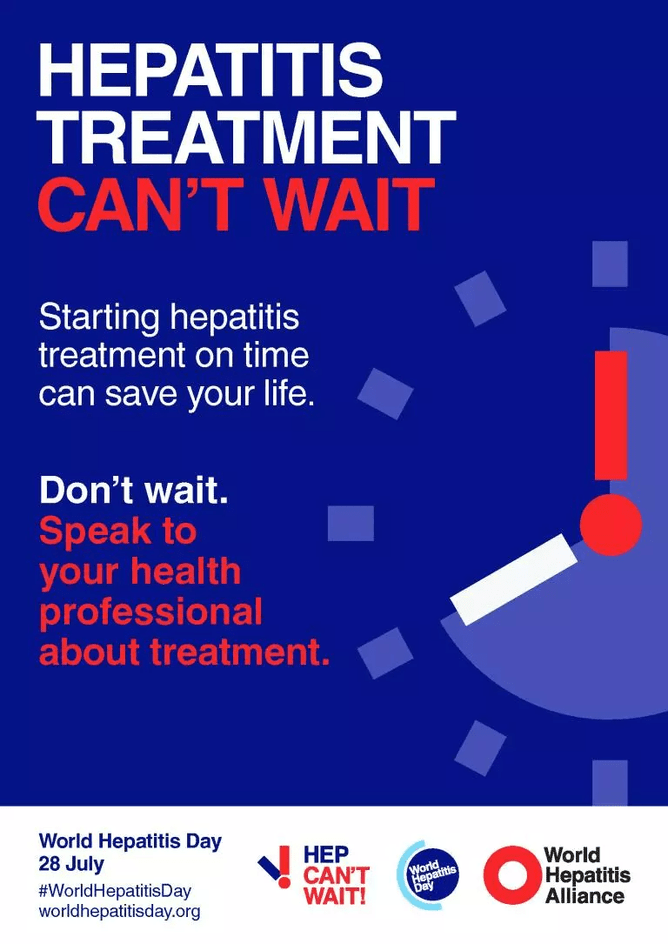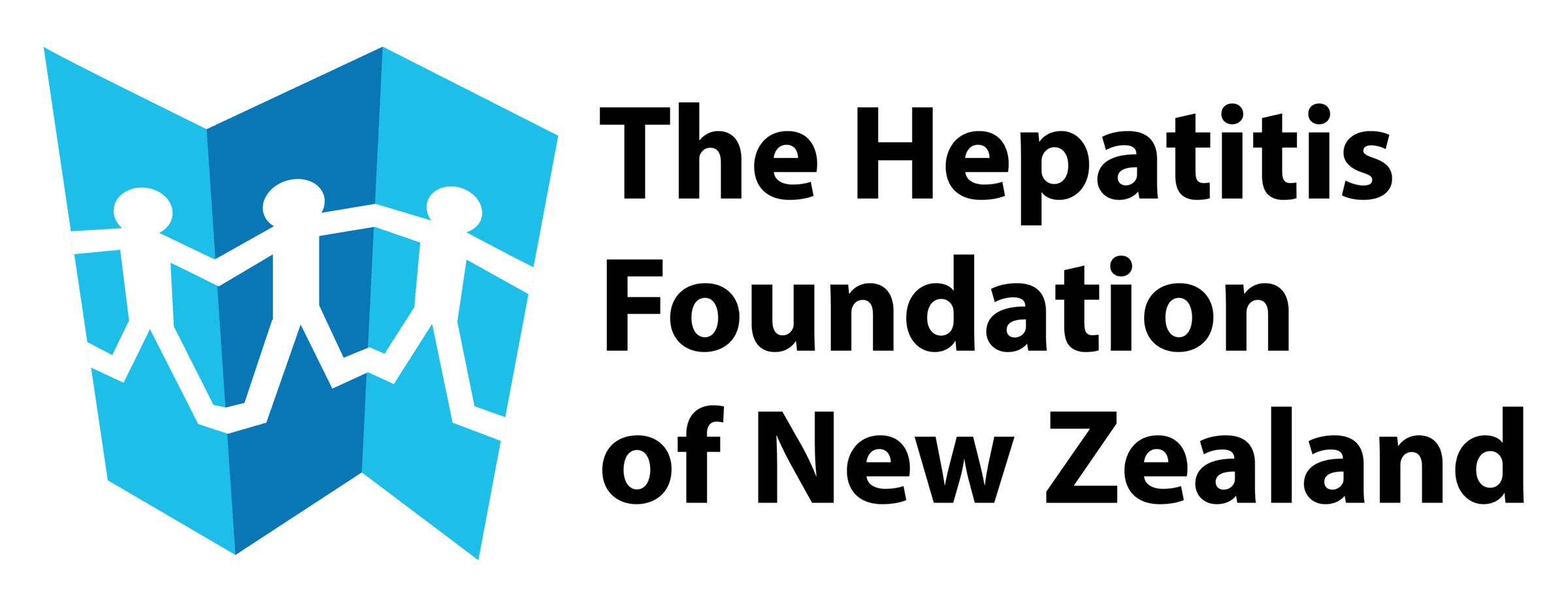Today, World Hepatitis Day (WHD) launches with the campaign theme ‘I Can’t Wait’. On WHD, the World Hepatitis Alliance (WHA) joins together with its global network of 320 members in 100 countries to lead the campaign internationally to accelerate the fight against viral hepatitis.
The ‘I Can’t Wait’ campaign theme builds on the previous Hepatitis Can’t Wait global campaign, and highlights the social injustice and inequity caused by the current lack of action on hepatitis elimination and focus on the positive action needed to get on track to meet the WHA’s 2030 elimination goals. The campaign will amplify the voices of people affected by viral hepatitis calling for immediate action from decision makers globally to prioritise the elimination of viral hepatitis.
Globally, 325 million people live with hepatitis, with more than 1.1 million lives lost each year to hepatitis B and hepatitis C1. Hepatitis is one of the most deadly and neglected diseases and health crises – one that is claiming a life every 30 seconds. By 2040, deaths from viral hepatitis are expected to exceed mortality from HIV, malaria, and tuberculosis combined2.
World Hepatitis Day comes as the world currently faces a new outbreak of unexplained acute hepatitis infections affecting children. As of 8 July 2022, 35 countries in five WHO Regions have reported 1,010 probable cases of severe acute hepatitis of unknown aetiology in children, including 22 deaths3.
This new outbreak brings focus on the importance of raising awareness of this viral disease which has traditionally disproportionately affected the economically disadvantaged. An estimated 197 million of hepatitis B-positive people (~79%) live in low- and middle-income countries in the African and Western Pacific region2.
Danjuma Adda, President, World Hepatitis Alliance says:
“The gains made to eliminate hepatitis have been uneven across the world, with those most impacted often the least likely to benefit. Most countries have failed to meet their Global Health Sector Strategy 2020 targets and many babies still lack access to the hepatitis B birth dose vaccine in many low- and middle-income countries, with less than 10% in Africa receiving a timely vaccine.
“Governments and global funders are turning a blind eye to the 1.1 million deaths each year and the continued impacts on communities across the world. We will no longer accept their excuses. It takes courage to speak out, but this World Hepatitis Day we come together globally to say ‘I can’t wait’ for an end to hepatitis and urge policy makers, global funders, and decision makers to act by increasing investment and financing hepatitis elimination.”
Cary James, Chief Executive, World Hepatitis Alliance says:
"World Hepatitis Day is our day to raise awareness of viral hepatitis. We ask that the public get involved in the ‘I Can’t Wait’ campaign whether it’s through social media, such as our ‘virtual global relay’ or ‘point to the time’ activations, or signing our pledge to eliminate hepatitis by 2030. With a person dying every 30 seconds from a hepatitis related illness – we can’t wait to act on viral hepatitis. Get involved now!”
Get involved
There are a number of ways to get involved in the ‘I Can’t Wait’ World Hepatitis Day campaign including downloadable campaign materials, tips and resources to use in every community. Visit http://www.worldhepatitisday.org to join the campaign.
For more information contact:
tajinder.tiwana@worldhepatitisalliance.org
james.gillies@worldhepatitisalliance.org
About Viral Hepatitis
Viral hepatitis is inflammation of the liver caused by a virus. WHO say that the total deaths cause by viral hepatitis, including acute cases, cirrhosis and liver cancer account for 1.1 million deaths globally in 2019. There are five different hepatitis viruses - hepatitis A, B, C, D and E. Hepatitis A and E is spread mainly through ingestion of contaminated food and water and the disease is often endemic in countries with a lack of safe water and poor sanitation, but rarely becomes chronic. Hepatitis B is transmitted through contact with the blood or other bodily fluids of an infected person and approximately 296 million people are living with chronic infections. Hepatitis C is mainly spread through blood-to-blood contact such as unsafe injection practices and inadequate sterilisation of medical equipment. Today, 58 million people are living with the disease. Hepatitis D is passed on through contact with infected blood and only occurs in people who are already infected with hepatitis B.
In total over 350 million people in the world are living with viral hepatitis. Each year over a million people lose their lives because of conditions related to acute hepatitis and chronic infection that cause liver cancer and cirrhosis. Chronic hepatitis B and C infections are the leading cause of liver cancer
Despite there being a vaccine and effective treatment for hepatitis B and a cure for hepatitis C – few countries in the world are on track to achieve the WHO target of eliminating viral hepatitis by 2030 (Polaris Observatory - CDA Foundation).
About World Hepatitis Day
I Can’t Wait’ is the campaign theme for WHD 2022 which takes place on 28 July. WHD will bring World Hepatitis Alliance and our global network of 318 members in 100 countries together to lead the campaign internationally.
With a person dying every 30 seconds from a hepatitis-related illness – we can’t wait to act on viral hepatitis.
People living with viral hepatitis unaware can’t wait for testing
People living with hepatitis can’t wait for life saving treatments
Expectant mothers can’t wait for hepatitis screening and treatment
Newborn babies can’t wait for birth dose vaccination
People affected by hepatitis can’t wait to end stigma and discrimination
Community organisations can’t wait for greater investment
Decision makers can’t wait and must act now to make hepatitis elimination a reality through political will and funding.
The World Hepatitis Alliance
The World Hepatitis Alliance (WHA) is a patient-led and patient driven non-governmental organisation. With 318-member patient groups from 100 countries, WHA works with governments, national members and other key partners to raise awareness of viral hepatitis and influence global change. To achieve a world free from viral hepatitis, WHA provides global leadership in advocacy, awareness-raising and the fight to end its social injustice.
www.worldhepatitisalliance.org
References
1. World Health Organization, 2017. Global Hepatitis Report, 2017. Available at: https://www.who.int/publications/i/item/9789241565455. Accessed 26 July 2022.
2. Foreman, K., Marquez, N., Dolgert, A., Fukutaki, K., Fullman, N., McGaughey, M., Pletcher, M., Smith, A., Tang, K., Yuan, C., Brown, J., Friedman, J., He, J., Heuton, K., Holmberg, M., Patel, D., Reidy, P., Carter, A., Cercy, K., Chapin, A., Douwes-Schultz, D., Frank, T., Goettsch, F., Liu, P., Nandakumar, V., Reitsma, M., Reuter, V., Sadat, N., Sorensen, R., Srinivasan, V., Updike, R., York, H., Lopez, A., Lozano, R., Lim, S., Mokdad, A., Vollset, S. and Murray, C., 2018. Forecasting life expectancy, years of life lost, and all-cause and cause-specific mortality for 250 causes of death: reference and alternative scenarios for 2016–40 for 195 countries and territories. The Lancet, 392(10159), pp.2052-2090.
3. World Health Organization, 2022. Severe acute hepatitis of unknown aetiology in children - Multi-country. Available at: https://www.who.int/emergencies/disease-outbreak-news/item/2022-DON400. Accessed 26 July 2022.



